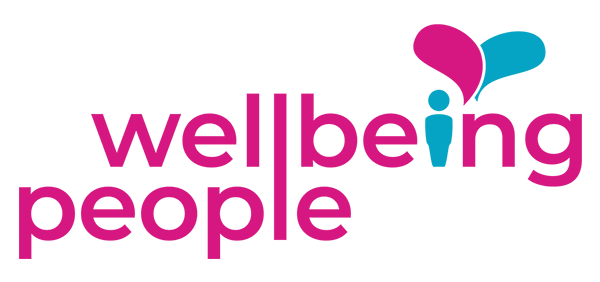Burnout is a state of mental, physical and emotional exhaustion caused by excessive and prolonged stress.
It occurs when someone becomes so overwhelmed and drained, that they are unable to keep on top of their workload and their day-to-day responsibilities. Burnout is most commonly related to work but it can affect anyone.
Work-related burnout is often caused by extreme and/or chaotic workloads, a lack of support and resources, unclear expectations, dysfunctional workplace dynamics, little control over your work and a poor work-life balance. Identifying these causes and putting systems and procedures in place will help to prevent employees suffering with this debilitating condition.
Once someone is suffering from burnout, there is no upside to pushing through the emotional and physical exhaustion as this will only cause more harm. Recognising the signs and understanding the symptoms in yourself and/or your colleagues will help you to avoid (or overcome) burnout and get you back on track much more quickly and without further consquences.
The pressure to address job burnout became so intense in 2019 that the World Health Organization declared burnout an occupational phenomenon in the 11th revision of the International Classification of Diseases.
Identifying burnout
Stress vs burnout – the difference. Stress comes and goes, and typically, the source of our stress is known. When someone is stressed, they can usually find comfort in things that they love and can see an end to their stressful episode. Burnout is initally harder to detect and doesn’t just suddenly happen. It is a gradual process that occurs over a length of time. We all have days when we feel down, tired, lacking motivation and struggling with daily activities. However, when someone feels like this most of the time, then they are most probably burned out.
Mental and physical exhaustion or collapse. Being unable to cope, feeling drained, loss of motivation, decreased satisfaction and low self-esteem are just a few signs of emotional exhaustion. Physical symptoms can include headaches, muscle pain, lowered immunity, change in appetite, fatigue, stomach ache, and difficulty sleeping.
Feeling overwhelmed. Increasing workloads and never ending to-do lists lead to working harder and longer hours with little or no time to take a break. This can cause feelings of being overwhelmed which in turn affects concentration levels and efficacy.
Isolation (and alienation from work related and social activities). Burnout can cause people to be cynical about their colleagues and the environment they work in. This can lead to people distancing themselves physically and emotionally from their work and those around them. It can also cause withdrawal from social situations and responsibilities.
Negativity is a symptom of burnout which affects daily tasks, procrastination and takes longer to get things done. It restricts creativity and concentration making work and daily life increasingly challenging, affecting our overall performance.
BURNOUT IS WHAT HAPPENS WHEN YOU TRY TO AVOID BEING HUMAN FOR TOO LONG - MICHAEL GUNGOR
Preventing burnout
Self-care. Making self-care part of your daily routine is essential to protect yourself from potential burnout. Ensure that you add positivity into every day. This can be as simple as a relaxing walk, a long hot bath, watching your favourite TV programme, calling a friend or 10 minutes meditation!
Exercise. This doesn’t have to mean hours in the gym or joining the local football team! It means taking regular movement breaks during the day such as stretching or short walks! Online yoga, pilates or workout sessions can be introduced at a time to suit your work-schedule. Regular activity helps to take your mind off work. Exercise is not just good for our physical health but our mental health too!
Balanced Diet. Eating well will ensure you are getting all the nutrients you need to give your body and mind the energy and vitality it requires to keep you sustained and feeling good throughout the day. For more information on eating a balanced diet click here
Sleep habits. Ensuring you get a good night’s sleep is essential to give your body a chance to rest and reset! For tips on how to get a good night’s sleep, take a look at our sleep blog here or visit the NHS website to take a sleep assessment
Asking for help. Whether you reach out to friends, loved ones or colleagues, it is important to ask for help, as this will help you to cope. Many companies provide Employee Assistance Programmes which offer immediate help at the end of a phone!
Wellbeing Culture. As an employer, give employees ongoing access to wellbeing advice and resources. Look at developing a wellbeing culture with a network of Wellbeing Ambassadors, Coaches or Champions. This will help employees manage times of work overload, stress and feelings of being overwhelmed. Click here for more information on building a successful Wellbeing Culture.
Workplace Wellbeing
Narrow the search for your next wellbeing initiative and discover the Wellbeing People approach to workplace wellbeing.
How to help someone that you believe is suffering from burnout
Listen without judgement. Just listening will help to offload and share their concerns. Don’t try to fix their problems or offer a solution but instead validate their emotions, as this helps them to know they have been heard. Offering to help or support areas of their life that they are struggling with can help lighten their load.
Small gestures of kindness can go along way to bring some joy to someone. Burnout sufferers struggle to see a better world, so doing something kind can help to lift negative thoughts.
Encourage them to see a health professional. A doctor or health professional will be able to make a correct diagnosis and will give expert guidance and help for recovery.
